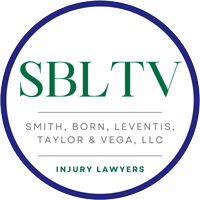
A Guide to SC Workers’ Compensation for
Restaurant Workers
Learn about your right to benefits and how to maximize your claim after an injury at a Columbia restaurant
The restaurant industry in South Carolina is thriving. According to the South Carolina Restaurant & Lodging Association (SCRLA), the state boasts 10,705 eating and drinking establishments across South Carolina. Collectively, these businesses employ approximately 257,800 workers, accounting for about 12% of the state’s workforce in 2022.
Impressively, in the same year, these businesses generated about $15 billion in sales, highlighting their significant contribution to the state’s economy.
Despite this impressive economic contribution, workers in South Carolina’s restaurants and bars face significant hazards. From kitchen burns and cuts to slips and falls among waitstaff, the physical demands and fast-paced nature of these jobs put employees at risk for a variety of workplace injuries.
If you’ve been injured while working in a restaurant in Columbia, it’s important to know that you may be entitled to workers’ compensation benefits to cover your medical bills and lost wages during your recovery.
This article will explain your rights, outline your potential benefits, and provide you with step-by-step instructions for filing a claim so you can maximize your compensation.
Is working at a fast food restaurant dangerous?
Yes, working at a fast food restaurant can indeed be hazardous. Similar to other restaurants, fast food establishments experience a significant number of injuries each year.
For example, in 2019, the U.S. Bureau of Labor Statistics (BLS) reported that restaurant workers suffered about 93,800 nonfatal injuries and illnesses, with about one-third of these cases requiring at least 1 day away from work, highlighting the severity of some incidents.
When comparing injury rates, the incidence of cases involving days away from work in restaurants was 88.3 cases per 10,000 full-time workers in 2019. This rate is slightly higher than the average for all private industry workers, which was 86.9 that same year, underscoring the very real risks associated with working in fast-paced and often physically demanding restaurant environments.
What is the leading cause of injuries in restaurants?
Due to the nature of restaurant jobs, it should come as no surprise that the top 3 injuries for restaurant workers, as reported by the BLS, include:
- Cuts and lacerations from working with sharp knives, slicers, graters, and other kitchen equipment
- Muscle and tendon sprains, strains, tears, and pain from lifting heavy boxes, carrying trays of food, and maintaining awkward postures for long periods
- Heat (thermal) burns from hot ovens, stoves, fryers, and boiling liquids. Steam burns are another common concern, especially in kitchens.
Other common injuries include:
- Repetitive stress injuries (RSIs). Constant chopping, stirring, and repetitive movements associated with specific tasks can cause RSIs like carpal tunnel syndrome in the wrists and tendonitis in the shoulders and elbows.
- Slip and fall injuries. Spilled food or drinks, greasy floors, uneven surfaces, and improper footwear all contribute to a high number of work-related slips, trips, and falls in restaurants. These can lead to serious injuries like broken bones, spinal cord injuries, and even head trauma.
- Exposure to harmful substances. Chemicals used for cleaning and sanitizing, if not handled properly, can cause injuries ranging from skin irritations to respiratory issues.
- Violence. Restaurant workers are particularly vulnerable to injuries from violence due to their frequent interaction with the public, often in environments where cash transactions are common. This exposure can lead to incidents such as robberies and assaults, which pose significant risks of physical harm to employees.
Addressing these hazards with proper safety training, equipment maintenance, and workplace organization is crucial to reducing the risk of injuries in restaurants and protecting the health of workers.
In the news:
South Carolina McDonald’s worker narrowly survives attempted armed robbery
In April 2024, a restaurant employee at a McDonald’s on Pawleys Island, South Carolina, was injured during an attempted robbery. According to the Georgetown County Sheriff’s Office, the assailant, who was wearing a ski mask and hoodie, demanded money and fired 3 shots, all of which missed.
The suspect then struck the employee on the head with a firearm before fleeing the scene. The injured employee was subsequently taken to Waccamaw Community Hospital for treatment.
Are South Carolina restaurant workers entitled to workers’ compensation?
Yes, in South Carolina, most businesses with 4 or more employees are required to carry workers’ compensation insurance. This means restaurant workers in these establishments are typically covered.
What about part-time restaurant workers? Do they qualify for benefits?
Yes, part-time restaurant workers have the same rights to workers’ compensation benefits as full-time employees, as long as the employer meets the minimum employee threshold. There is no minimum number of hours that must be worked per week to be eligible.
What workers’ comp benefits am I entitled to if I get injured working in a restaurant?
If you suffer a job-related injury, illness, or disease while working in a restaurant in South Carolina, you may be entitled to several key workers’ compensation benefits, including:
- Medical benefits. Workers’ compensation covers all essential medical treatments connected to your injury or illness, including hospital stays, doctor visits, surgeries, medications, and any necessary rehabilitation or therapy.
- Wage loss benefits. If your injury or illness prevents you from working, you can receive wage loss benefits. These benefits typically amount to two-thirds of your average weekly wage, subject to state-imposed minimum and maximum limits. They are provided until you are able to return to work or reach maximum medical improvement (MMI).
- Vocational rehabilitation. If your injury is so severe that it prevents you from returning to your previous job, you may be eligible for vocational rehabilitation services. These services aim to help you find new work within your physical capabilities, potentially including job training and educational assistance.
- Death benefits. In the unfortunate event that a worker dies as a result of a work-related injury or illness, their dependents may receive death benefits. These benefits include compensation for lost income and can also cover funeral and burial expenses.
The amount of compensation you ultimately receive will depend on the type and severity of your injury, illness, or disease. If you’ve suffered a serious health condition, it’s wise to consult with a local work injury attorney before accepting a settlement to ensure you’re getting the full compensation you’re entitled to.
Occupational Diseases in the Workplace
Learn how to prove an occupational disease or illness was caused by your job so you can get the compensation you deserve.
What steps do I need to take to get workers’ comp benefits after an injury in SC?
To receive workers’ compensation benefits after an injury or illness sustained while working in a restaurant or any other kind of business in South Carolina, you should follow these steps:
- Seek medical attention. Get medical treatment immediately. Your employer may direct you to a physician who is authorized under their workers’ compensation insurance, unless it’s an emergency situation. It’s important to tell the medical provider that your injury is work-related and ensure that this is documented in your medical records.
- Report the injury or illness. Inform your employer about your injury or illness as soon as possible. South Carolina law requires that you report the injury within 90 days of the incident or the discovery of the illness. It’s crucial to do this in writing and include all pertinent details, such as the date, time, and circumstances of the injury.
- File a workers’ compensation claim. While your employer is typically responsible for reporting the injury to their workers’ compensation insurance carrier, you can also file a claim yourself with the South Carolina Workers’ Compensation Commission by submitting Form 50. This form must be filed if you need to formally dispute any issue related to your claim or if your employer does not report your injury.
- Prove the injury is work-related. To qualify for benefits, you must prove that your injury or illness is directly related to your work. This is where detailed medical records, witness statements, and an accurate initial injury report become essential. The connection between your job duties and the injury must be clear and supported by evidence.
- Follow through with all procedures. Continue to follow up on your treatment and stay engaged with all processes related to your claim. Attend all medical appointments and comply with treatment plans, as failing to do so can affect your eligibility for continued benefits.
Understanding the importance of proving that the injury is work-related cannot be overstated. If the insurance company or your employer disputes the nature of your injury as being related to work, it may result in a denial of your claim.
In such cases, or if you find the claims process overwhelming, consider consulting with a workers’ compensation attorney who can provide support and help navigate any complexities, ensuring that your rights are protected and you receive the compensation you deserve.
Injured working in a restaurant or bar in Columbia? We can help!
If you’re a South Carolina restaurant worker grappling with a serious injury, you don’t have to face the complexities of your workers’ compensation claim alone.
The dedicated Columbia work injury attorneys at Smith, Born, Leventis, Taylor & Vega understand the significant challenges you’re experiencing. We’re committed to ensuring you receive the comprehensive benefits you’re entitled to and will help you through every step of the process.
Reach out to Smith, Born, Leventis, Taylor & Vega today for a free consultation, and take the first step toward securing the compensation you rightfully deserve.
References
93,800 nonfatal injuries and illnesses in full-service restaurants in 2019 : The Economics Daily: U.S. Bureau of Labor Statistics. (n.d.). www.bls.gov. https://www.bls.gov/opub/ted/2020/93800-nonfatal-injuries-and-illnesses-in-full-service-restaurants-in-2019.htm#:~:text=Private%20industry%20workers%20in%20full
SOUTH CAROLINA RESTAURANT INDUSTRY AT A GLANCE. (n.d.). https://restaurant.org/getmedia/9ffa048e-8d04-4407-8189-e24ed936187a/South-Carolina.pdf

